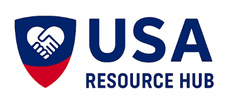When financial hardship strikes, covering basic expenses like rent, utilities, food, and medical bills can become overwhelming. While government programs offer structured support, many people either don’t qualify or face long wait times. That’s where charitable organizations step in: providing fast, targeted assistance to help individuals and families stay afloat.
Charities across the United States offer bill payment support, emergency aid, and case management services. Whether you’re dealing with job loss, unexpected medical costs, or rising living expenses, these nonprofits can help bridge the gap.
What Types of Bills Can Charities Help With?
Charitable organizations typically assist with:
- Rent and mortgage payments
- Utility bills (electricity, gas, water, phone)
- Medical expenses and prescription costs
- Food and grocery vouchers
- Transportation support (gas cards, bus passes)
- Childcare and school-related costs
- Clothing and hygiene supplies
Some charities also offer financial coaching, job placement assistance, and referrals to other local services.
National Charities That Help With Bills
1. The Salvation Army One of the most recognized charities in the U.S., The Salvation Army provides emergency financial assistance for rent, utilities, and food. Local chapters may also offer shelter, clothing, and disaster relief. You can find support through their official website or by contacting your nearest location.
2. Catholic Charities USA Operating in nearly every state, Catholic Charities offers help with housing, utility bills, food, and medical expenses. Services are available to individuals and families regardless of religious affiliation. Visit their website to locate a local agency and apply for assistance.
3. Jewish Federation of North America (JFNA) JFNA provides financial aid, food vouchers, and utility support to households in need. While rooted in Jewish community service, their programs are open to people of all backgrounds. Assistance is typically available to those earning at or below 200 percent of the federal poverty level.
4. The Assistance League This nonprofit operates in 25 states and helps thousands of families each month with utility bills, clothing, and school supplies. Each chapter sets its own eligibility rules, so contact your local branch for details.
5. HealthWell Foundation For individuals facing high medical costs, the HealthWell Foundation offers grants to cover prescriptions, insurance premiums, and out-of-pocket expenses. Their support is especially helpful for those with chronic or serious health conditions.
Local and Community-Based Support
In addition to national organizations, many cities and counties have local charities that provide direct aid. These may include:
- Community action agencies
- Faith-based outreach programs
- Food banks and pantries
- Neighborhood resource centers
- United Way affiliates
To find local support, dial 211 or visit United Way’s 211 directory. This free service connects you with nearby charities offering financial assistance, food, shelter, and more.
How to Apply for Help
Each organization has its own application process, but most require:
- Proof of income (pay stubs, benefit letters)
- Identification for household members
- Documentation of hardship (eviction notice, utility shutoff warning, medical bills)
- Social Security numbers or tax documents (if applicable)
Some charities offer walk-in support, while others require appointments or online applications. Be prepared to explain your situation clearly and ask about bundled services or referrals.
Tips for Getting the Most Out of Charitable Support
- Apply early. Funds are limited and often distributed on a first-come, first-served basis
- Be honest and thorough during intake
- Follow up if you don’t hear back within a few days
- Ask about additional services like financial coaching or job placement
- Keep copies of all documents and correspondence
If you’re denied assistance, request a written explanation and ask about appeal options or alternative programs.
Charitable organizations play a vital role in helping people navigate financial emergencies. Whether you need help with rent, utilities, food, or medical bills, these nonprofits offer compassionate, practical support when it matters most.


Leave a Reply